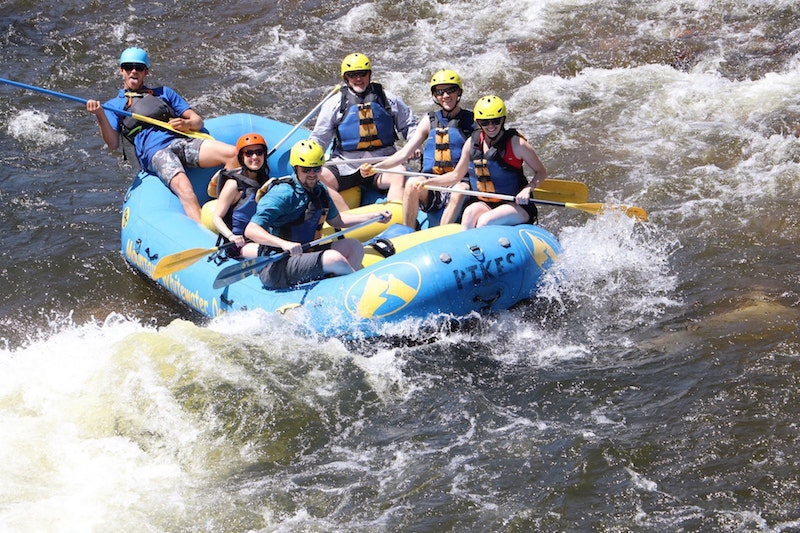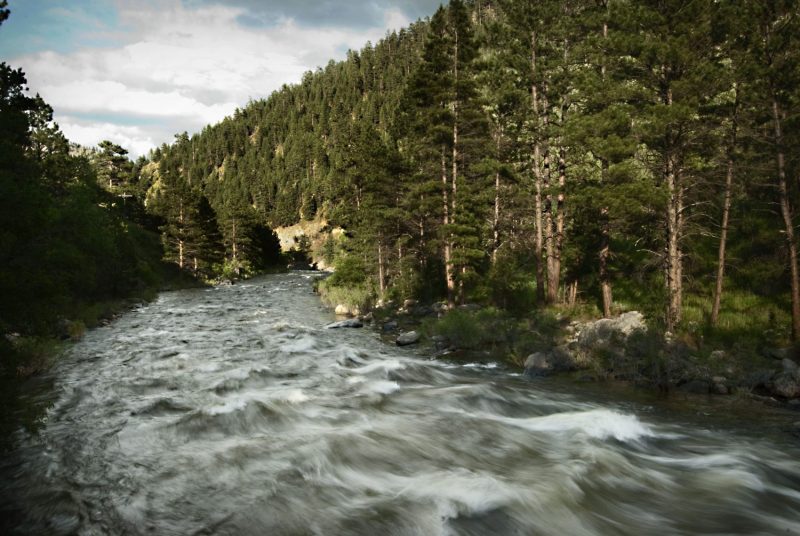
What’s the difference between a catfish and a raft guide? One has whiskers and smells bad; the other one’s a fish.
This is one of those jokes that doesn’t tend to stray too far from the truth– raft guides are dirty, sun-burnt, mildly hungover, and definitely don’t get paid enough. But you’ll be entrusting them with your life as they handily guide you down adrenaline-pumping rapids all day long. It’s up for debate, but raft guides might just have the best job in the world.
As a guide myself, I couldn’t be more grateful for the opportunity to lead folks down beautiful stretches of river and run thrilling rapids day-in and day-out. It’s important to always remain appreciative of this incredible job, but it doesn’t mean that guiding is always butterflies and rainbows. It’s hard work. It’s time-intensive. And it certainly can be stressful. But, it’s also rewarding and it has taught me so many valuable lessons.
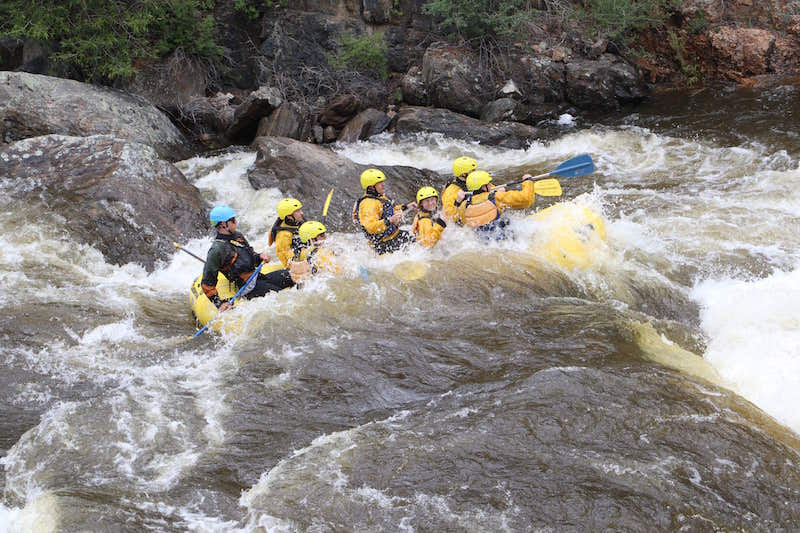
Here are a few of the insights I’ve gained from my experience as a guide:
Prepare for your body to never fully recover for the duration of the season. Rafting is physically demanding. When on trips, guides are perpetually performing an intense upper body work out as they pry, draw, and j-stroke guests down the river. Often working two trips a day or full-day trips with little time off, guides can anticipate constant muscle soreness until the season’s end.
Get ready to fail, fail again, and then fail some more. If there were actually a school of hard knocks, it would probably be guide school. At some point or another, you’re going to wrap, flip, and /or dump truck your whole crew. Chances are, you’ll do all three eventually. Screwing up is just part of the game. It’s also one of the best ways to learn and improve. Every time a guide makes a mistake, they take it upon themselves to ensure they never repeat the same mistake twice. Learning from experience is paramount, so get ready for some carnage.
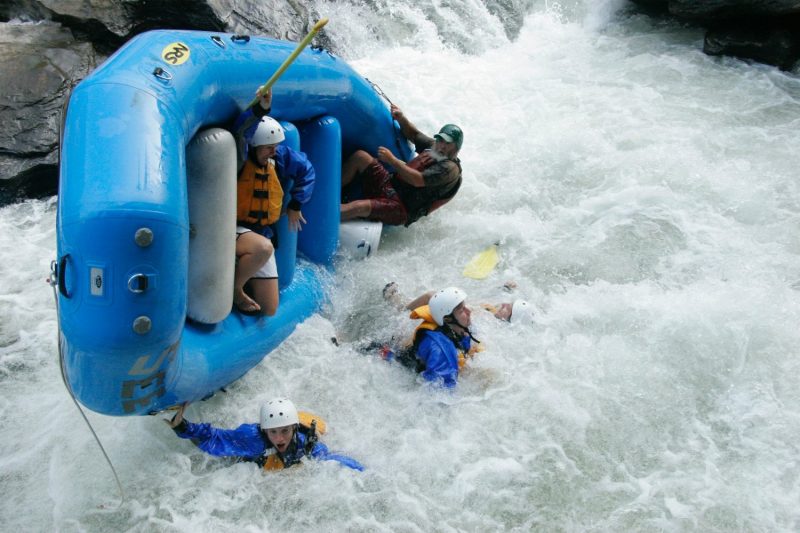
Every day will be different. Most guides run the same river or the same handful of rivers every single day. The familiarity gained from this repetition is awesome but that doesn’t mean any two trips will ever be the same. Every day, guides encounter novel challenges on the river. Sometimes, guides get crews that are terrified of water and don’t want to paddle. Other days, guides have to run a new line down the scariest rapid because a strainer is blocking the entrance to their normal line. Occasionally, guides find themselves contending with the elements as they paddle into headwinds or battle heat-exhaustion, which brings to my next point…
Regardless of the conditions, you’re going out. When we started the rafting season last May in Colorado, there was still snow on the ground and the river was a brisk 45 degrees. Throughout that month, the mountains of Colorado received three more storms totaling three-plus feet of snow per storm. Despite the freezing wintry May, we still ran trips. As the season progressed, we experienced blazing-hot afternoons, hail, and a very common a mid-day thunder and lightning storm. Rain, sleet, snow, or shine, be ready to raft.
Fake it until you make it. Being a guide is all about embracing positivity and confidence. Your crew is relying on you to be a leader. As such, having confidence in yourself and your decision making is crucial. Guests can sense your lack of confidence, and if they do, they will be less likely to follow commands and paddle when you need them the most. The point here is that from day one, you need to approach the river with confidence. Even if you are scared to run a rapid that flipped you the previous day, it’s best to put on a smile and roll with the punches.
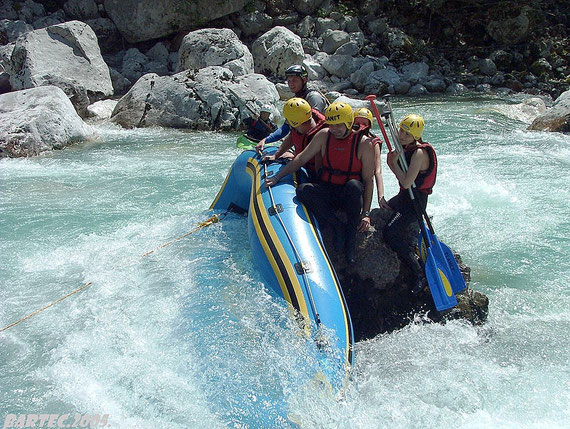
Practice humility. Let’s make clear the distinction between confidence and cockiness. Confidence is critical to a guide’s success, while cockiness is the catalyst for disaster. All it takes is one unintentional swim to remind you that the river is powerful and doesn’t give a sh*t about you, your raft, or guests. Always respect the river. As you learn, understand there will always be more to know. In the same vein, respect and appreciate the knowledge you gain from more experienced guides. They can serve as a treasure trove of rafting knowledge, which might just save from some tough lessons they had to learn the hard way. Be sure to listen and thank them for their insights. Additionally, practice humility towards your guests. It’s your job to show them why they too should respect the river and ecosystems surrounding it. Not to mention, if it weren’t for them, you wouldn’t have a job.
Rafting is a team sport. One cannot overstate the importance of collaboration and teamwork when on the river. Guides rely on their crews to paddle. Guides also rely on each other in the event that something goes wrong. Working as a team helps mitigate risk on the river and leads to safe, fun trips. If being a team player isn’t your thing, then you’d best look for a different line of work.
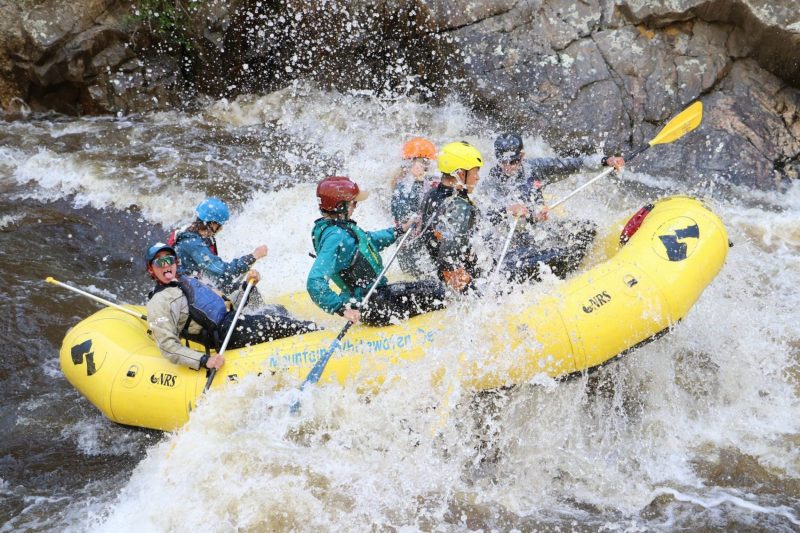
Don’t get jaded. I’ve worked with guides who have been rafting for over 20 years and are still just as stoked as they were during their rookie season. I’ve also met seasoned guides who have lost that spark and are generally jaded and unpleasant to be around. Remember why you became a guide in the first place. Understand that, while yes, guiding is a job, it should be fun. That doesn’t mean every day has to be the best day ever, but if you can’t shake a season-long bad attitude, then it might be time to take a summer hiatus from guiding and rethink your priorities. Don’t worry, the river isn’t going anywhere.
Being a raft guide has been one of the most exhilarating and rewarding jobs I’ve ever had. I love the challenges, experiences, and the whitewater community. This list comprises just a handful of lessons that running whitewater has taught me. I still have so much more to learn, explore, and experience. I can’t wait for what the river will teach me next.
